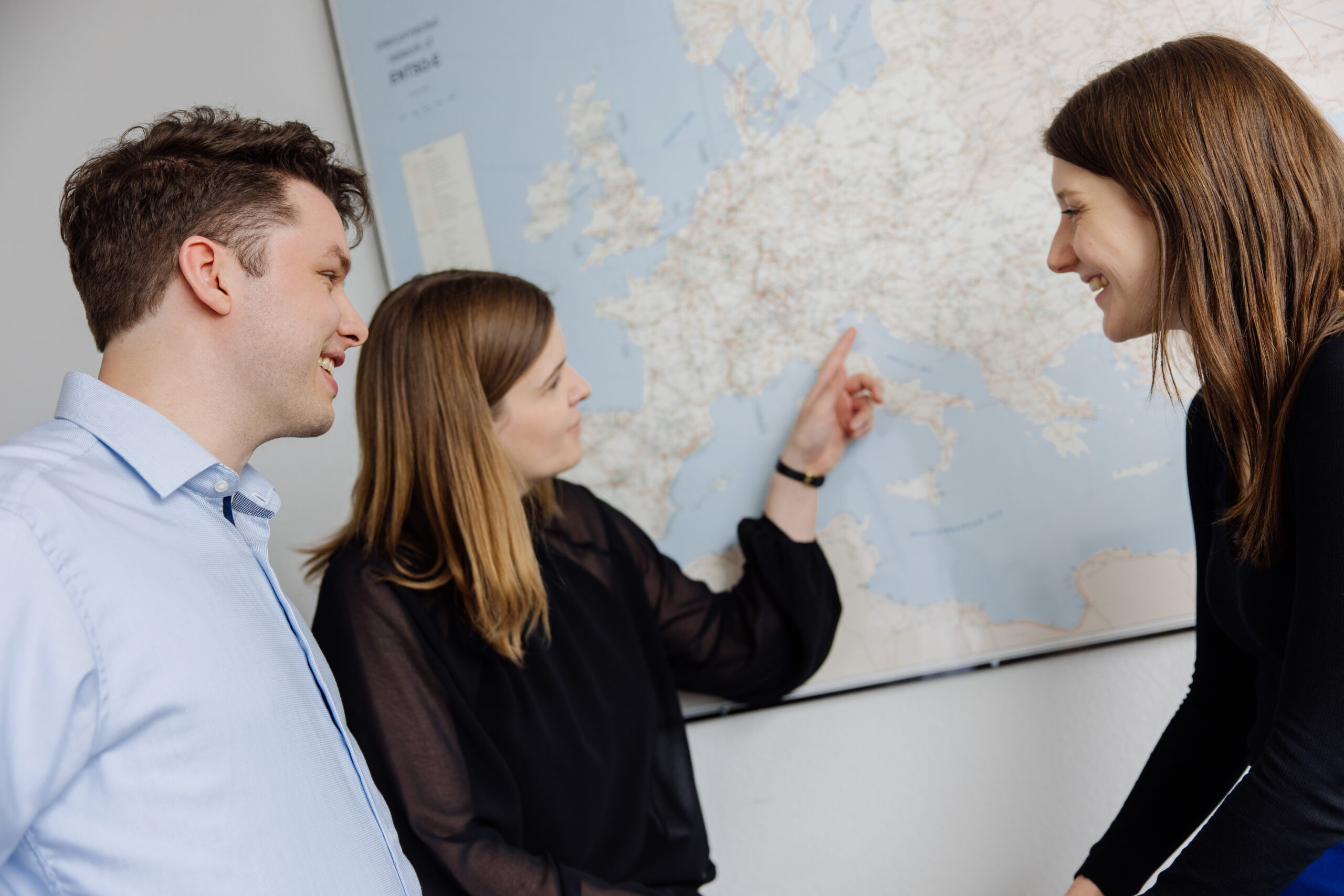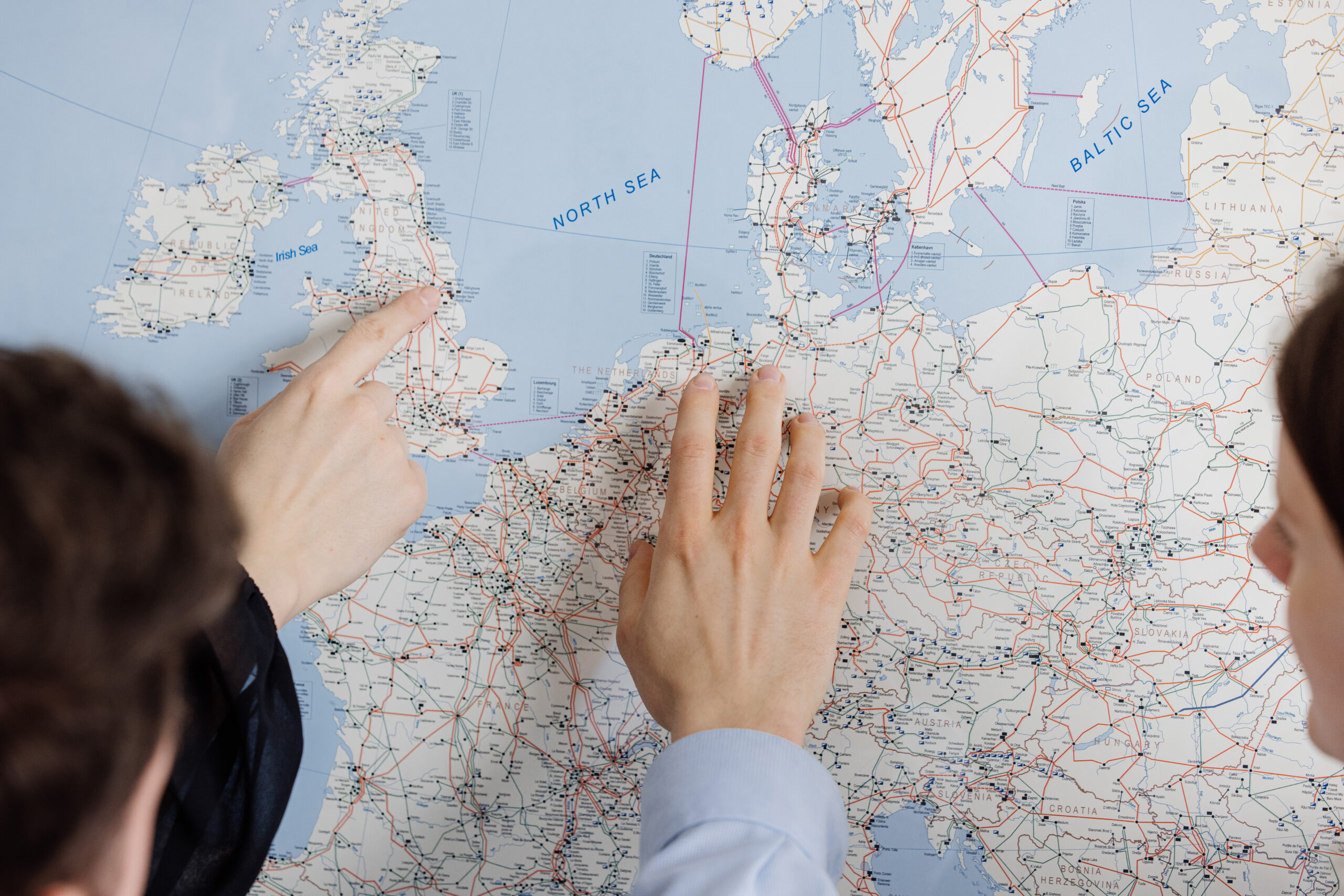Schlagwort: ‘Energiewende’
Excellent researchers on an interdisciplinary stage: lecture by Professor Monti
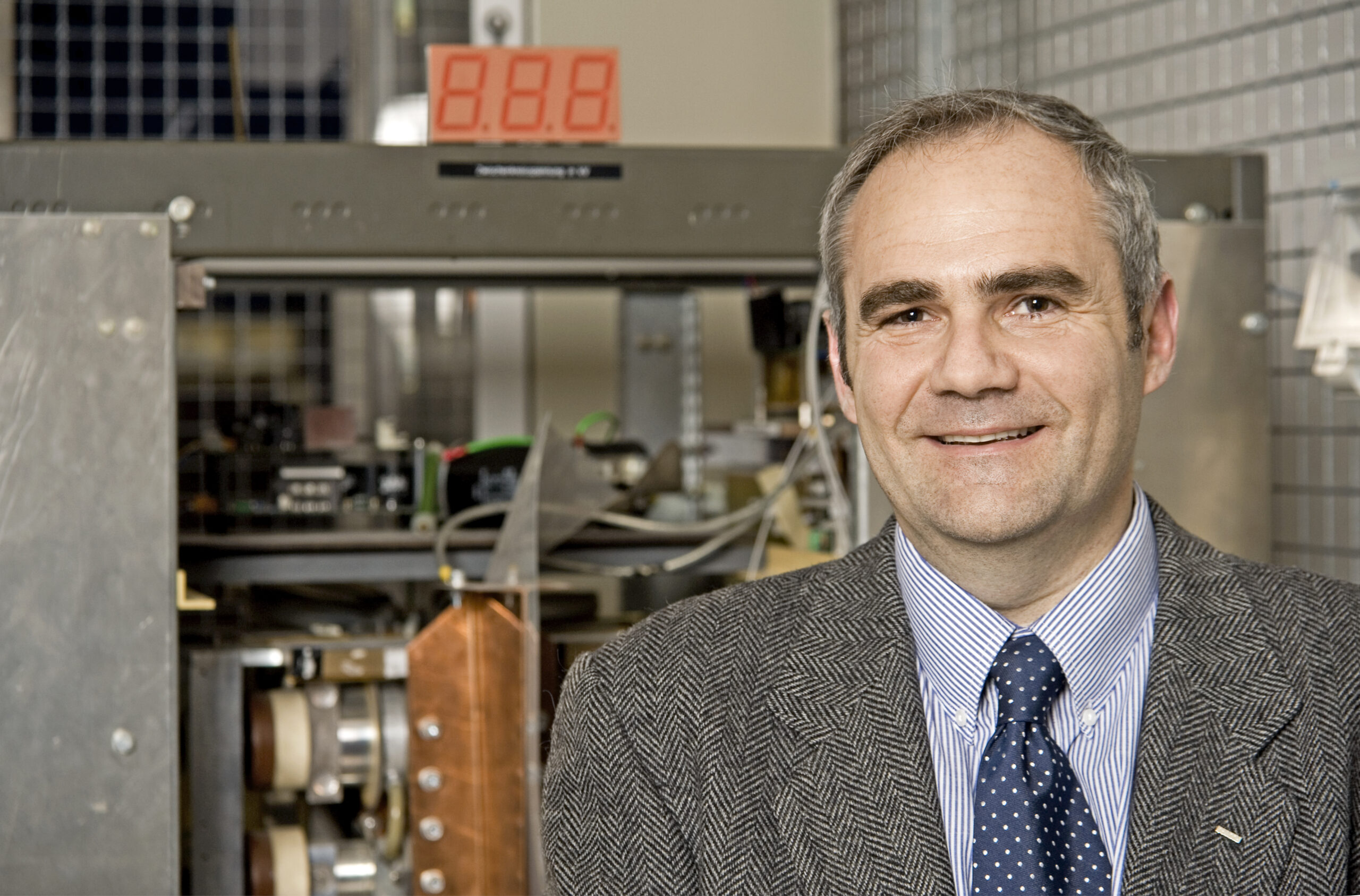
© Peter Winandy
On 17 April, Professor Antonello Monti of RWTH Aachen University will speak at the scientific meeting of the engineering and economics class of the “Nordrhein-Westfälische Akademie der Wissenschaften und der Künste” about the development goals of his discipline in terms of solving major societal challenges.
Against the background of the international situation, the energy transition process is more important than ever.The necessary technological transformation of the energy system must be approached from two angles: On the one hand, a new major player in energy supply has emerged: renewable energy. On the other hand, there are new consumers such as electromobility and heat pumps. Digitalisation is proving to be a key enabler in this process. You could even say that digitalisation is not an option, but a necessity. The power system is consequently becoming a large, programmable cyber physical infrastructure with a high level of complexity. In his presentation “The Digitalisation of the Energy Systems: from the electrons to the cloud”, Professor Monti addresses this complexity by analysing the solutions currently being developed for the different levels of the infrastructure.
” Rethinking the whole architecture means reconsider the basic principles of operation of the new power system but also the corresponding IT systems”,
announced Professor Monti, Director of the Institute for Automation of Complex Power Systems (ACS).
So what does it mean to run a digital grid? And will we be able to build a digital grid that is as reliable as the current infrastructure?
The solutions he proposes in his presentation are the result of concrete experience from large European research projects. Professor Monti leads a research group with about 50 full time scientists working intensively on the the border between energy and information and communication technologies. He is responsible for coordinating some of the most relevant European projects in this field, such as OneNet, TwinEU und int:net. His research work has received several awards, including the prestigious “IEEE Field Medal Award for Innovation in Public Infrastructure” and the “NRW Innovation Award”.
In another presentation – “Sustainable metals: contributions from basic research” – Professor Dierk Raabe from the Max Planck Institute for Sustainable Materials will address the question of whether we can succeed in decarbonising a key industry with “green steel”.
Further information on the Nordrhein-Westfälische Akademie der Wissenschaften und der Künste can be found on the organisation’s homepage.
CO2For-IT: A data room for the timber industry with a focus on climate protection
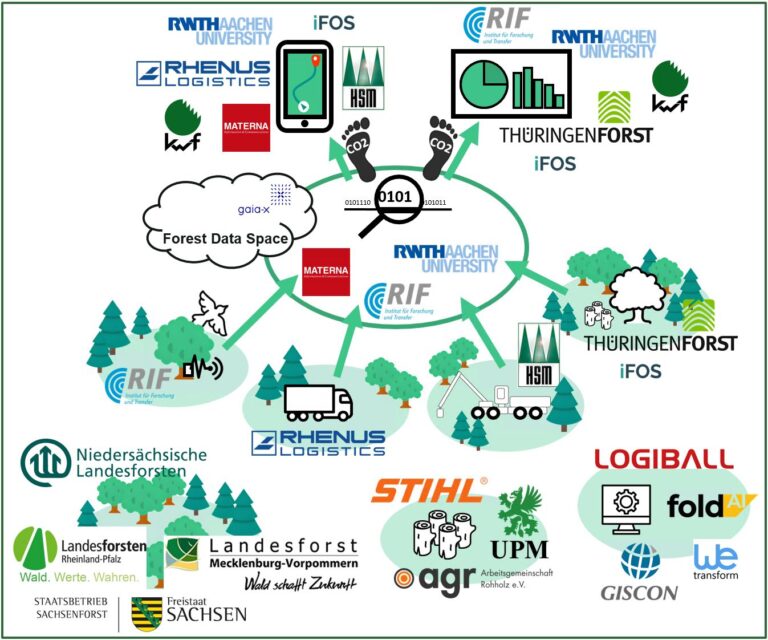
Project partners in CO2For-IT. © Institute for Man-Machine Interaction RWTH Aachen University
A new initiative to promote a climate-friendly timber industry was launched in July 2023. The CO2For-IT project, supported by the Federal Ministry of Economics and Climate Protection, aims to create a “Forest Data Space” to enable the sustainable use of wood from forests.
The Forest Data Space will provide data on the carbon footprint of the entire timber value chain and therefore support the development of data-based solutions for climate protection. The project is led by Materna Information & Communications SE and coordinated by the Dortmund Institute for Research and Transfer (RIF e.V.). Other partners include RWTH Aachen University, Rhenus Forest Logistics GmbH & Co. KG, HSM Hohenloher Spezial Maschinenbau GmbH & Co. KG, Forstliches Forschungs- und Kompetenzzentrum Gotha (ThüringenForst – AöR) and Kuratorium für Waldarbeit und Forsttechnik e. V. (KWF). In addition, foldAI and iFOS GmbH are collaborating with the project.
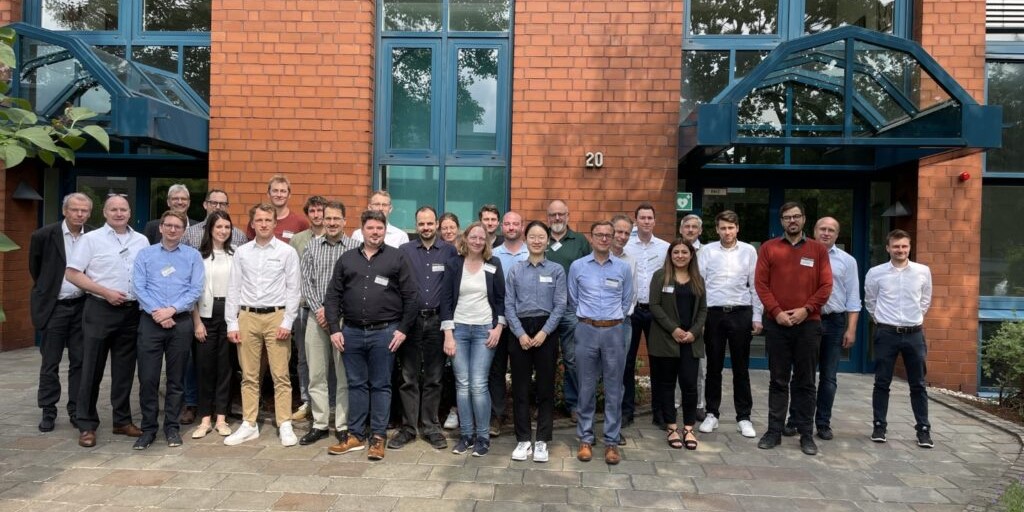
© Institute for Man-Machine Interaction RWTH Aachen University
For more information visit: KWH 4.0 | CO2For-IT (kwh40.de) (only in german)
Energy Park Herzogenrath: Chair of Electrochemical Energy Conversion and Storage Systems is involved in research
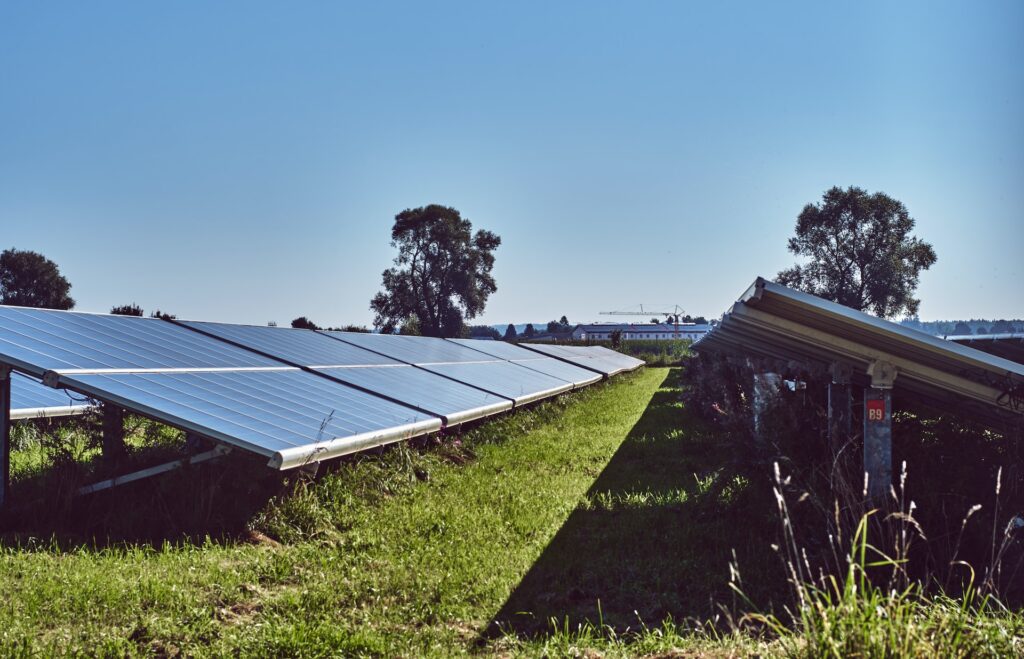
© Michael Förtsch by Unsplash
The project for CO2-neutral energy supply in Herzogenrath, the first city in NRW to strive for this goal, is accompanied by a consortium of four chairs and institutes, including the Chair of Electrochemical Energy Conversion and Storage Systems Technology.
Herzogenrath wants to achieve CO2-neutral energy supply by 2030. A consortium of Siemens Energy, RWTH Aachen University, Aachen University of Applied Sciences and the Niederrhein University of Applied Sciences is conducting research on the project “Energy Park Herzogenrath Research & Development”, which is funded by the Federal Ministry of Economics and Climate Protection with 2.7 million euros. The project is also closely interlinked with other ongoing research and funding projects: at the local flat glass manufacturer Saint Gobain, CO2-free production is being researched, in which the Chair of Electrochemical Energy Conversion and Storage Systems Technology at the E.ON Energy Research Center (ERC) of RWTH Aachen University is involved. The aim is to recycle the heat generated during glass production in Herzogenrath and Kerkrade in the Netherlands as green heating energy.
The project uses a digital twin that virtually maps and simulates the energy supply. In this way, different scenarios can be tested and optimised. The project looks at generation, consumption and marketing options across sectors. RWTH is receiving around 918,000 euros in funding for this.
More information on the project can be found at Energiepark Herzogenrath – Strukturwandel Rheinisches Revier (revier-gestalten.nrw) and at CO2-neutral bis 2030: Forschungsprojekt Energiepark Herzogenrath mit rund 2,7 Millionen Euro gefördert | Wirtschaft NRW.
Climate protection through electrical engineering – Professor Dirk Uwe Sauer’s lecture at the Children’s University
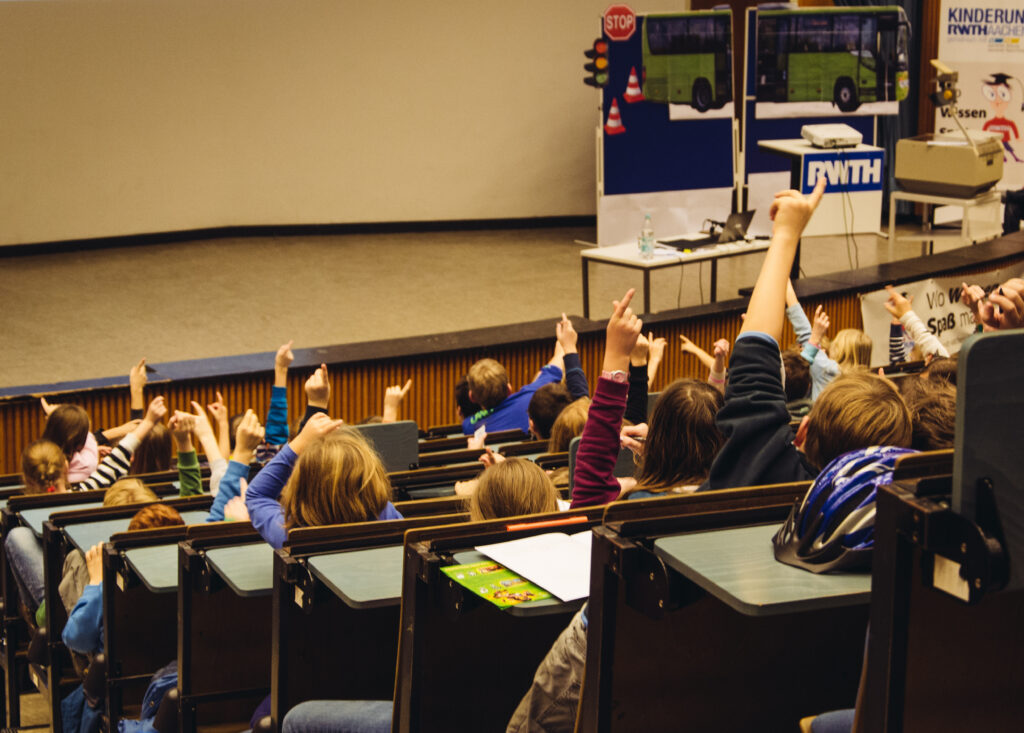
Kinder im Hörsaal. ©RWTH Aachen University
Whether drought, floods or forest fires – the consequences of global warming are dramatic for nature and people. The countries of the global south are being hit particularly hard, but the effects are also being felt here. We experienced this at the latest with the devastating floods in July 2021. That is why we urgently need to address the issue of climate change.
This is also what Dirk Uwe Sauer, Professor of Electrochemical Energy Conversion and Storage Systems Technology at RWTH Aachen University, is doing. He has been researching new energy systems for over 30 years and advises politicians on the energy transition.
„We see in all places that climate change is happening – with many negative consequences. And we urgently need a radical change in the way we have supplied ourselves with energy so far.“
This does not only affect us adults, but especially the children and young people of today. They will have to live with the limitations that climate change will bring. “I don’t think we should underestimate what children know and what they are capable of,” says Professor Sauer.
It is not too late to make a difference
In his lecture, the physicist not only explained the dangers of climate change, but also made the necessary changes understandable. He used various materials such as videos, slides and interactive presentations to show the physical basics and the possibilities through timely action: “I also want to spread optimism and show that things can also get better than they currently are. Because if we still grab the wheel in time, then we still have the possibility to avoid worse things.” For this to happen, however, society must overcome its fear of new technologies. The professor said that there is too much talk about the risks instead of seeing the opportunities. “And we simply can’t afford that now either.” A ruling by the Federal Constitutional Court in 2021 has obliged politicians, and thus the population, to act more quickly. The slower progress is made, the more the living conditions of the next generations are restricted. That is why the previous federal government tightened the climate protection targets and the Climate Protection Act. “We have the opportunity to achieve these goals. We have the necessary technologies to supply all eight billion people in the world properly with renewable energy,” Sauer said.
Climate change is an important issue that concerns us all. But what does it actually mean and how can we work against it? Professor Sauer explained this to the children in his lecture at the Children’s University on 16 June 2023. He showed them how the earth is warming up and what consequences this has for nature and people. He also presented solutions on how we can protect the climate with renewable energies and new technologies. For example, with solar cells that generate electricity from sunlight, or with electric cars that emit no exhaust gases. Professor Sauer showed the children not only the problems of climate change, but also the opportunities that arise from it. He showed them that we can not only influence the climate with our energy supply, but also promote biodiversity.
„I would like to show the children that, for example, large photovoltaic systems on open fields not only generate electricity, but also create space for extensive agriculture, for insects that can live and flourish in these areas again.“
Climate change is a major challenge that we can only overcome together. For this, we need an awareness of the connections between energy and the environment that starts with children. Another goal of the Children’s University event was to get the children excited about scientific topics. “Physics has the great advantage that it can illustrate things very vividly and also show connections,” said Sauer. Using simple means, Professor Sauer showed where research starts and what possibilities can arise through technical progress.
Source: Aachener Zeitung, 16 June 2023


